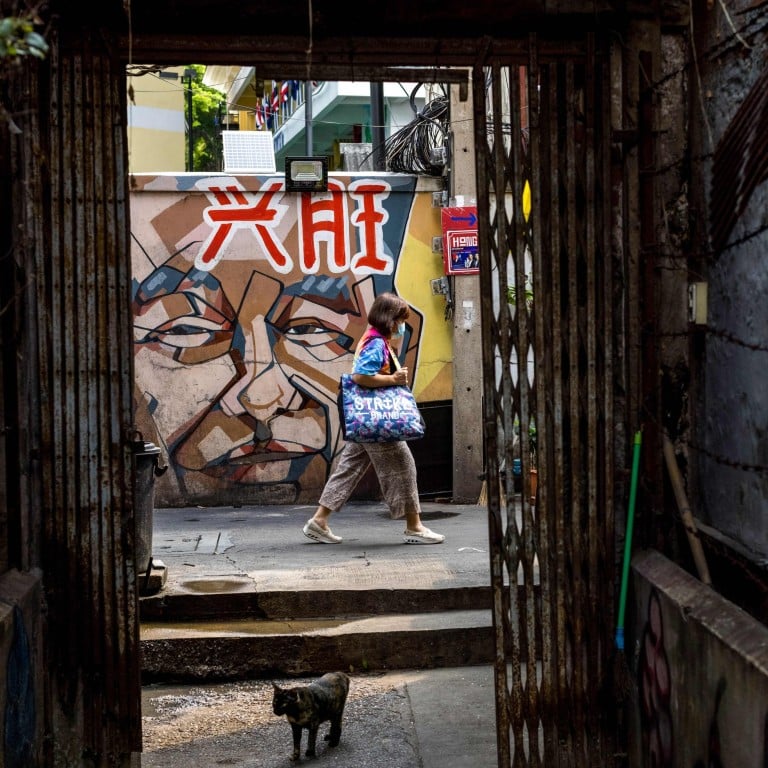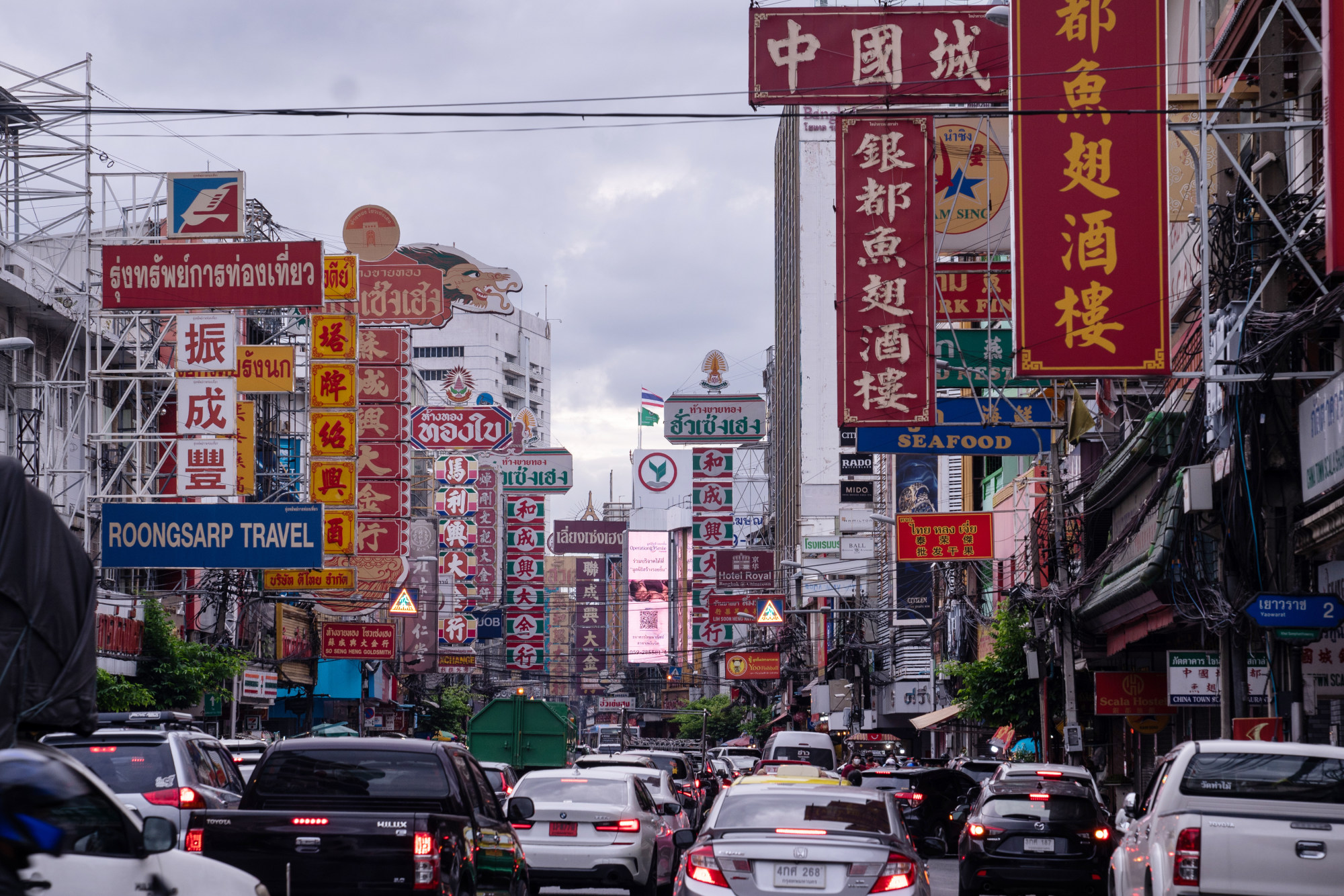
New Chinese migrants to Thailand hit with negative stereotypes, language barrier form ‘parallel communities’
- Unlike earlier Chinese migrants to Thailand, many ‘xin yimin’ are more transient and report finding social interactions with local Thais challenging
- Hindered by communication struggles and negative stereotypes, they tend to seek out their fellow Chinese in search of belonging and support
Earlier migrants found success, studies show, by assimilating and integrating into Thai culture, but over recent decades a new generation of Chinese migrants has emerged who do not necessarily aim to settle in their host countries.
These new, more transient migrants may be mainly searching for business opportunities and to pursue a better quality of life, strategically encouraged by China to explore such opportunities overseas as part of its official discourse on xin yimin (new migrants) – even as others simply wish to pursue personal dreams.

Thailand became a prime destination for many, and since the 2000s, they have moved to its big cities in substantial numbers. By 2020, the number of new Chinese migrants in the country had reached 77,000 – variously moving for business, education, lifestyle and leisure.
But they have reported finding social interactions with local Thais challenging, citing language barriers and a lack of social communication skills – plus the negative stereotypes about foreign Chinese held by the locals.
Thai perspectives
Thai diplomatic discourse has historically emphasised deep historical and cultural ties between the two nations, with China portrayed as a generous big brother – a narrative that is nonetheless slowly changing amid contemporary US-China rivalries.
‘We want them back’: at Lunar New Year, Thailand pines for Chinese tourists
Chinese tourists and travellers are stereotyped as “fools but rich” and as having “uncivilised manners” – negative portrayals that affect both social interactions and economic partnerships. An image of Chinese businessmen as “selfish” and “cheating” has also been propagated by some sections of the Thai business community, fuelled by reports of fraud and scams that are often little more than gossip circulated among locals.
These negative stereotypes have led to new Chinese migrants feeling socially ostracised in public. Some Chinese parents whose children attend international schools even report Thai families explicitly showing a preference for Western families over Chinese ones.
Parallel communities
For new Chinese migrants, complete assimilation into Thai society is not mandatory. Unless aiming for permanent residency, they are not required to apply for Thai citizenship and can thus remain citizens of China – in contrast to earlier migrants and their descendants who have Thai citizenship and now form well-established ethnic Chinese communities across Thailand.
In big cities such as Chiang Mai and Bangkok, these new migrants’ lifestyles may not necessitate much interaction with local Thais, but communication struggles also mean many cannot freely engage if and when they need to.
As a result of this – and in search of belonging, as well as emotional and material support – new social groups have formed to actively engage with these new Chinese migrants, reflecting the emergence of “parallel communities” that do not necessarily intersect with those of the local Thai population.
More cultural education and opportunities for interaction between new Chinese migrants and Thai locals are needed, to dispel negativity and reverse social division
In Chiang Mai, these take the form of religious groups and communities of Chinese parents and guardians whose children attend international schools and universities. The largest of the latter has some 1,000 members who discuss issues via WeChat ranging from retirement visas to advice on healthcare, banking, shipping and shopping.
Chinese families, especially newcomers, often rely on these mutual-assistance communities to overcome some of the challenges of living in a new country, such as negotiating with international schools.
The religious groups of Chiang Mai focused on the Chinese community, meanwhile, comprise two Christian churches and a Buddhist spirituality group, which variously provide attendees with a space to congregate, meet new friends, take part in social activities, learn new skills and network, in addition to fulfilling their spiritual needs.
Thailand delays hit China’s Southeast Asian high-speed railway ambitions
Thai and English language classes are offered and the groups have also extended financial help and other assistance in the past, such as airport pickups and finding accommodation.
In conclusion, new Chinese migrants to Thailand seek out Chinese-associated circles. The variety of social groups reflects the emergence of parallel communities that do not necessarily intersect with local ones. The lack of a need to apply for Thai citizenship means many do not have to put down roots. At the same time, negative myths and stereotypes about Chinese people held by local Thais dilute friendly interaction and partnerships between the two. Under such circumstances, new Chinese migrants have been prone to seek connections with fellow Chinese.
More cultural education and opportunities for interaction between new Chinese migrants and Thai locals are needed, to dispel negativity and reverse this social division.
Aranya Siriphon is Visiting Fellow at the Regional Social and Cultural Studies Programme at Singapore’s ISEAS-Yusof Ishak Institute. She is also Associate Professor at the Department of Sociology and Anthropology, Faculty of Social Sciences, Chiang Mai University. Fanzura Banu is Research Officer at ISEAS – Yusof Ishak Institute. Pagon Gatchalee is Lecturer at the Department of Marketing at Chiang Mai University Business School.



